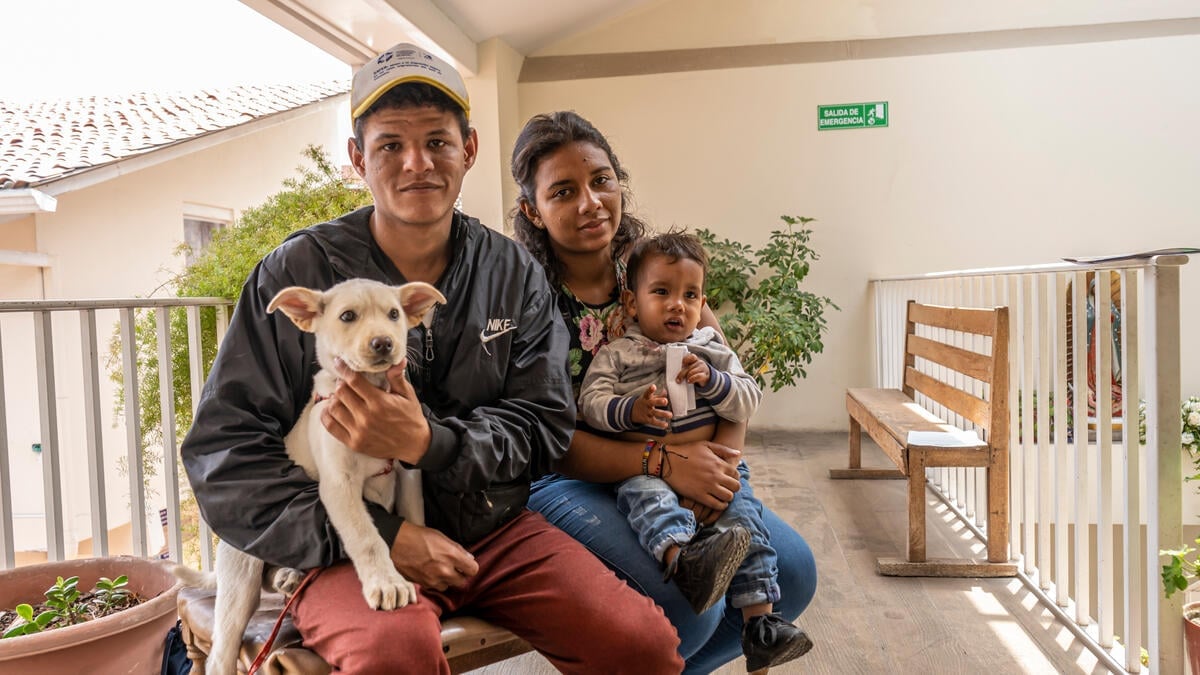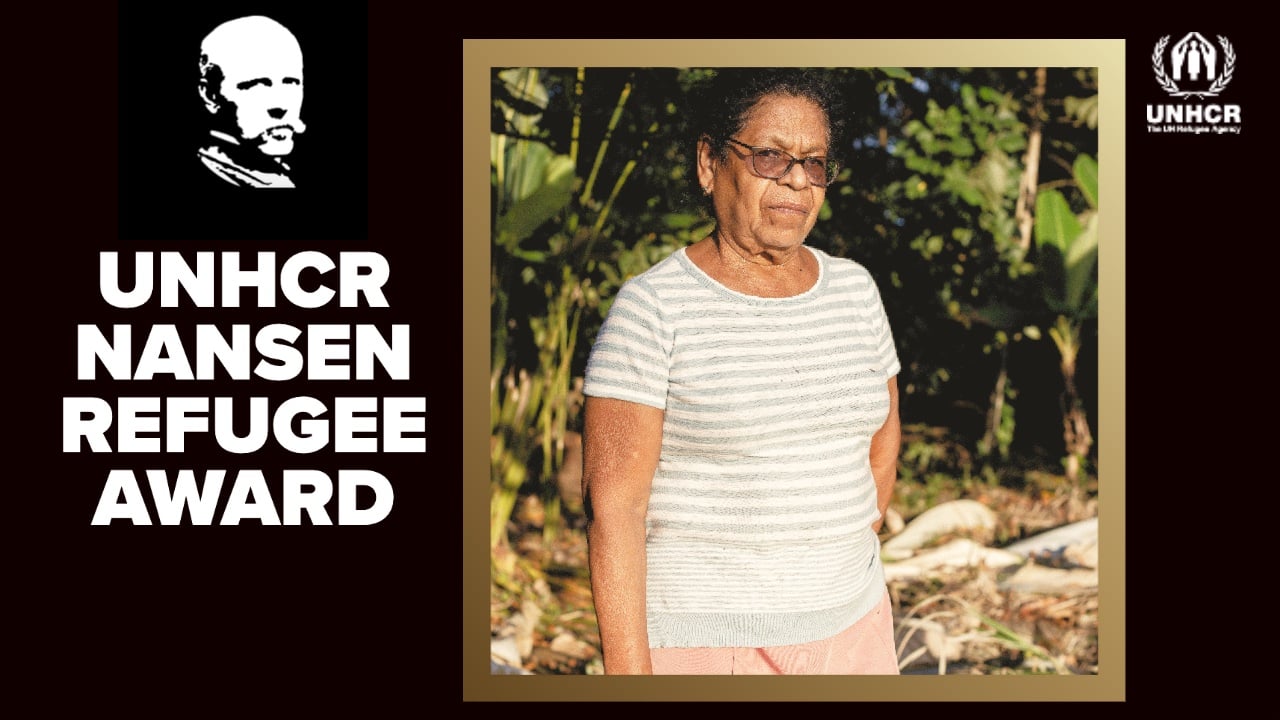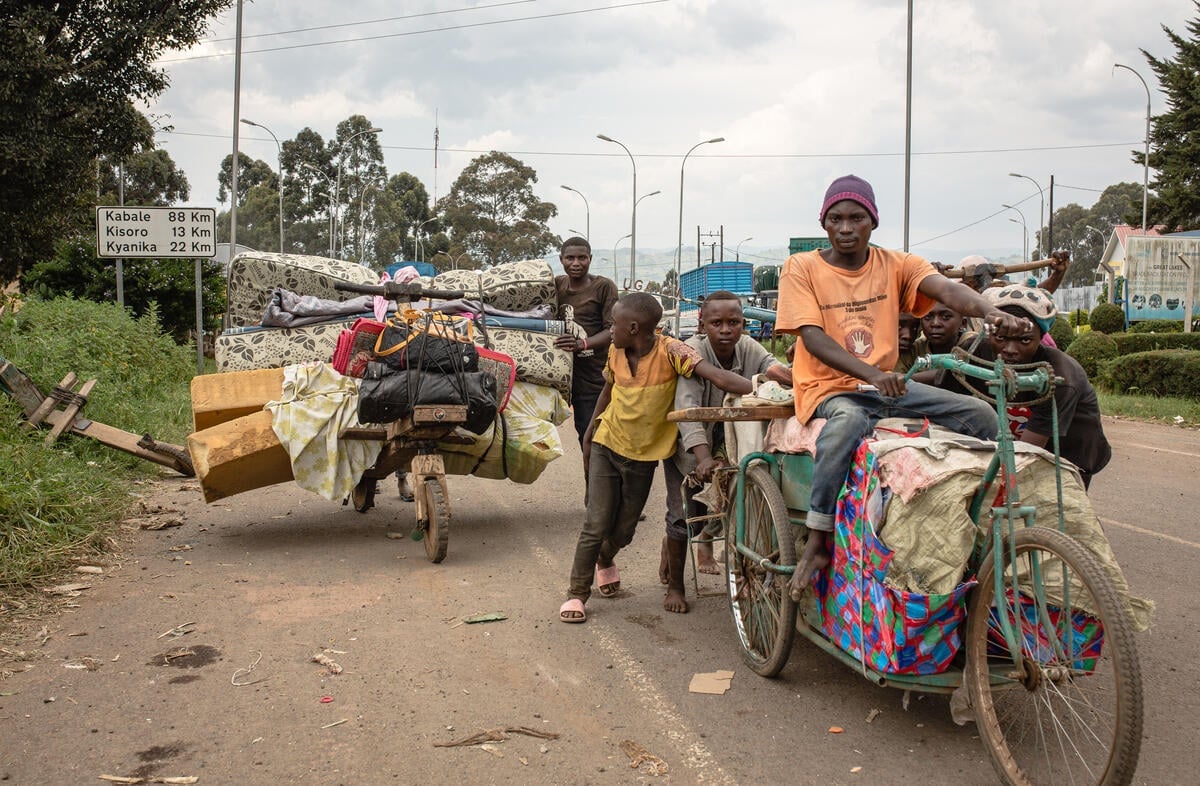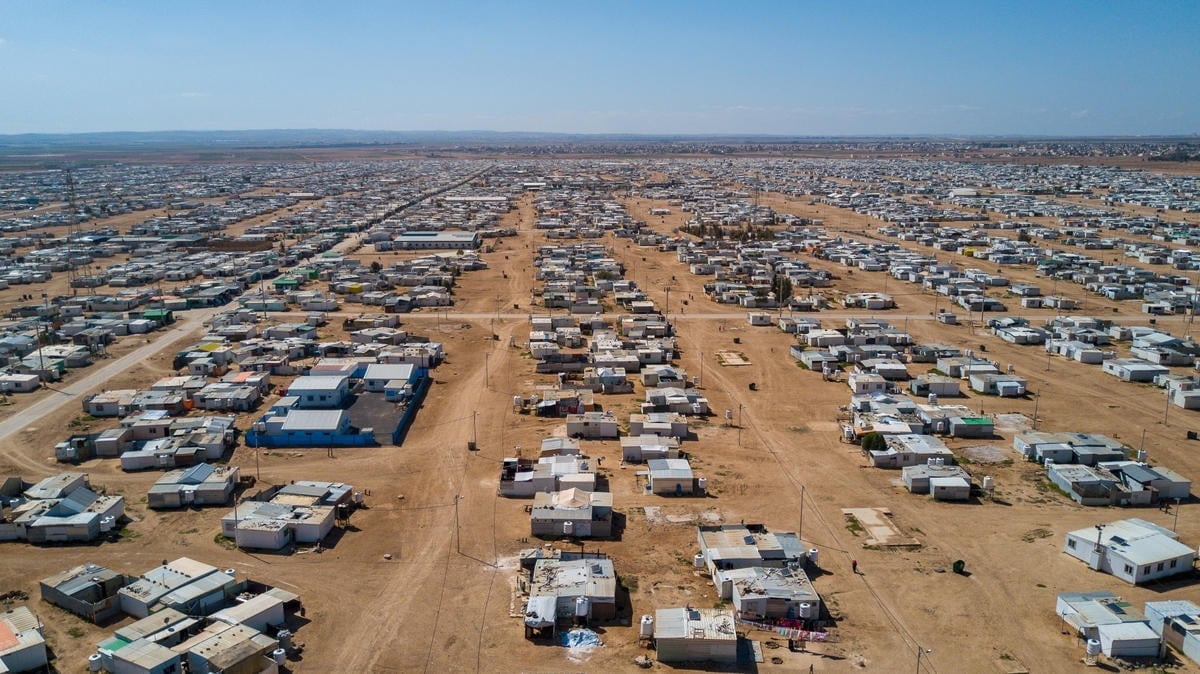Hard times lure Afghans to Iran, deter some refugees from returning
Hard times lure Afghans to Iran, deter some refugees from returning

KABUL, Afghanistan, August 11 (UNHCR) - On most weekdays a long queue of people stretches down the pavement outside the Iranian Embassy in Kabul, located opposite the UNHCR office in the Afghan capital. The wait can easily last hours, even days, and many come away disappointed.
The hundreds of people queuing are in search of work. Many of them are former refugees who have returned home from camps in Pakistan or Iran since the fall of the Taliban in 2001. The scarcity of jobs in Afghanistan is not only convincing young men to look for work elsewhere; it is also deterring many refugees from returning home.
"I'm waiting for my Iranian visa," said 23-year-old Qurban Ali. "I want to go to Mashhad [in north-east Iran] for a pilgrimage, to visit friends and to look for a job to support my family in Kabul."
Nearby, a man called Reza was getting increasingly frustrated with the long wait. "One of the areas which has seen the least development in Afghanistan [since 2001] is the creation of job opportunities," he complained. "This has forced thousands of young Afghans to look for jobs outside the country."
A recent study commissioned by UNHCR and funded by the European Commission says high unemployment, low wages and widespread poverty in Afghanistan are major factors pushing single men to migrate to Iran in search of work. Average wages in Iran are four times those in Afghanistan, according to the study, carried out by Kabul-based Altai Consulting.
"Repatriation has increased Afghanistan's population by an estimated 20 percent since 2002, a huge and rapid increase for any poor, developing country," said Ewen Macleod, UNHCR Representative in Afghanistan. "Employment will continue to be a major and important challenge for all Afghans, especially the young generation".
Three decades of conflict have left Afghanistan with serious socio-economic challenges. Many Afghan refugees in Iran and Pakistan considering repatriation say the lack of jobs and basic services makes their decision difficult. Refugees who have returned - as well as Afghan citizens who never left their homeland - struggle to survive.
Deputy Minister of Labour and Social Affairs Wasel Noor Mohammand said that more than 325,000 people had sought help from his ministry in finding employment, but only some 55,000 had found work in the government and private sectors. "Efforts to find jobs for the remaining applicants are ongoing," he said.
"The problem in finding jobs is the lack of skilled labour and computer knowledge among Afghan job seekers, who are mostly daily wage workers and illiterate," explained economic analyst Ustad Massoud, a professor at Kabul University.
The result is many Afghans look elsewhere for work. Some go to Pakistan as seasonal labourers while others go to Iran. The vast majority of them move back and forth irregularly and without documents.
In Iran, Afghan migrants and refugees work mostly in the construction and agriculture sectors. They often take jobs that Iranians don't want, and offer a reliable source of cheap labour. Their remittances - estimated at some US$500 million per year- help to support their families and villages.
"The movement of Afghans to and from Afghanistan is not a new phenomenon," said Abdul Karim Brahawi, the Afghan minister of refugees and repatriation.
However, he noted, "Now we have to look at the phenomenon from a different angle than the refugee perspective. It's essentially economic migration."
Since 1979, millions of Afghan refugees have sought safety mostly in Pakistan and Iran. Since 2001, some 850,000 Afghans refugees have returned from Iran with UNHCR's help. A further 1 million registered Afghan refugees remain in the country.
Meanwhile, the queues outside the Iranian embassy show no sign of shrinking. Mujtaba, an ethnic Hazara from Bamiyan in Afghanistan's central highlands, wants to work in Iran because he has a fiancé but cannot afford to get married.
"My elder brother and several of his friends went to Iran last year and earned enough money to get married," he said. "His standard of living has encouraged me to go to Iran and make enough to pay for my wedding and support my family here."
By Mohammad Nader Farhad
In Kabul, Afghanistan









